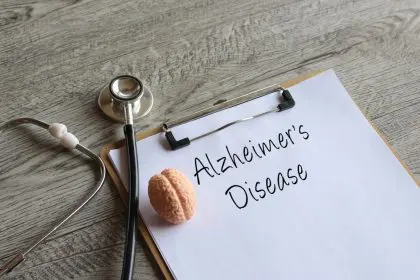Recognizing the early signs of Alzheimer’s can feel like standing at the edge of an emotional cliff — overwhelming, terrifying and confusing all at once. But knowing how to respond to early Alzheimer’s symptoms can make all the difference in supporting a loved one and planning for the road ahead.
This article explores key ways to respond, what steps to take and how to navigate this life-changing condition with strength and compassion.
Understanding the importance of early action
When someone you care about starts showing signs of memory loss, confusion or changes in personality, the first instinct may be to deny it or hope it’s something minor. But early action is essential. Alzheimer’s is a progressive brain disorder, meaning it worsens over time. Acting early gives you and your loved one time to seek support, explore treatment options and make crucial decisions together.
Key symptoms to watch for include:
- Frequently forgetting recent conversations or events
- Repeating questions or stories
- Struggling with familiar tasks like cooking or managing finances
- Getting lost in familiar places
- Experiencing mood swings or personality shifts
While occasional forgetfulness is normal with aging, patterns that disrupt daily life deserve serious attention.
Starting the conversation with compassion
If you notice changes, don’t ignore them. Find a calm, private time to express your concerns. Speak kindly and avoid sounding confrontational. For example, you might say “I’ve noticed you’ve been forgetting some things lately, and I’m a little worried. How have you been feeling?”
This approach invites an open dialogue rather than putting the person on the defensive. Remember, they may already sense something is wrong and feel scared or embarrassed.
Seeking medical evaluation
Encourage a visit to the doctor. A thorough evaluation can determine whether the symptoms are due to Alzheimer’s or another cause, such as medication side effects, vitamin deficiencies or depression. An early diagnosis can open the door to treatments that may slow progression and improve quality of life.
Don’t wait until symptoms worsen — the earlier you get answers, the more time you have to make informed choices.
Building a support system
Caring for someone with Alzheimer’s is not a solo job. Bring together family, friends and healthcare professionals who can provide emotional, practical and medical support. Start identifying resources in your community, such as Alzheimer’s support groups or memory care specialists.
Make sure the person with the diagnosis is part of these conversations whenever possible. Their input matters and helps preserve their sense of independence.
Addressing legal and financial planning
While it’s a difficult topic, addressing legal and financial plans early is crucial. Help your loved one review their will, power of attorney, healthcare directives and financial accounts. Taking these steps now ensures their wishes are respected later when decision-making may become more challenging.
Creating a safe environment
Small changes around the home can prevent accidents and reduce confusion. Consider labeling cabinets and drawers, removing tripping hazards, installing grab bars in bathrooms and using medication organizers or reminder systems.
These steps help maintain independence while ensuring safety.
Encouraging activity and engagement
Keeping the brain and body active can slow cognitive decline. Suggest simple exercises like walking, puzzles or listening to music. Focus on activities your loved one enjoys — the goal is to stimulate their mind and lift their spirits, not to overwhelm them.
Supporting yourself as a caregiver
Caring for someone with Alzheimer’s can be emotionally draining. It’s easy to fall into a pattern of neglecting your own needs, but burnout only makes the situation harder. Make time for rest, hobbies and your own social connections. Seek respite care or support groups when needed — you are not alone, and you deserve support too.
The more you learn about Alzheimer’s, the better prepared you’ll be. Read reputable sources, attend workshops and talk to healthcare professionals who specialize in memory care. Understanding what to expect helps reduce fear and equips you to handle challenges with resilience.
Planning for the future
While there is no cure for Alzheimer’s, medications and therapies can help manage symptoms and improve quality of life. Work with your loved one’s healthcare team to explore available treatments and stay informed about new research and clinical trials.
As Alzheimer’s progresses, care needs will increase. Start thinking ahead about options such as in-home care, adult day programs, assisted living or memory care facilities. Having a plan in place eases the transition when the time comes.
Moving forward together
Knowing how to respond to early Alzheimer’s symptoms empowers families to face this journey with courage and hope. Early intervention, compassionate conversations and thoughtful planning can make an overwhelming diagnosis feel more manageable.
Above all, remember that love and connection remain powerful, even as memories fade. By approaching each step with empathy and preparation, you can create a path forward that honors your loved one’s dignity and preserves as much joy as possible along the way.
If you or someone you know is navigating the early stages of Alzheimer’s, reach out for help today. There is strength in community, and you don’t have to face this alone.












